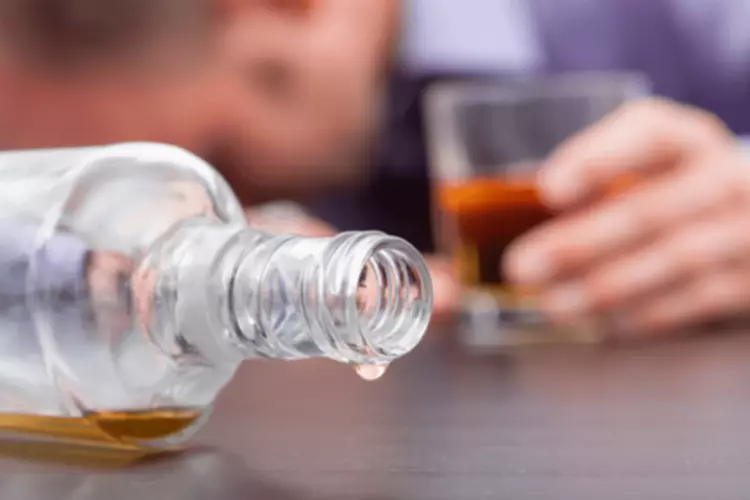
Rehab programs will help break the cycle through detox and therapy — either one-on-one or group sessions. However, when it comes to dopamine levels and addictive substances, alcohol behaves somewhat differently than other substances or pharmaceuticals. Alcohol does not prevent the reuptake of dopamine while other substances do.
Gene variants related to DA systems and alcohol dependence
Of course, you will experience less and less pleasure from drinking over time because over time the negative effects of drinking become more and more what is alcoholism apparent and we tend to worry about our drinking more and more. After all, you’re not going to get your ‘feel good boost’ if you are worrying about something. This in and of itself will ensure that you get less Serotonin and Endorphins when you are drinking, and is another reason why, over time, our drinking becomes less and less enjoyable.
- Consequently, dopamine acts at multiple sites to control the integration of biologically relevant information that determines motivated responding.
- Alcohol reduces glutamate excitotoxicity (VTA); enhances GABA inhibitory activity (VTA) and enhances dopamine release from the VTA to NA by disinhibiting GABA via endogenous opioids.
- Alcohol interferes with the brain’s communication pathways, disrupting the delicate equilibrium of our neurological functions.
- “In the middle of summer in Austin, and you’re really thirsty, then drinking water should increase dopamine levels in the brain — that should be one of the most effective ways to increase them,” he said.
Substance Abuse Treatment Programs

Cowen M and Lawrence A. The role of opioid-dopamine interactions in the induction and maintenance of ethanol consumption. Conversely, there are also high rates of alcohol-related disorders in psychiatric patients, particularly in those with bipolar disorder and depression when compared to the general population 19, 20. Thiamine deficiency in alcohol dependence occurs because of poor absorption of thiamine from the GI tract, impaired thiamine storage and reduced thiamine phosphorylation in the brain, reducing the amount of active thiamine in the brain. There is evidence of a link between serotonin deficiency, impulsivity and drinking behaviour which may explain the role of SSRIs in suppressing alcohol reinforced behaviour in some alcohol-dependent patients. Topiramate is another agent used in alcohol dependence which is not only effective in reducing alcohol craving but also reducing symptoms of depression and anxiety. Dave Cundiff, MD, MPH is an experienced leader in the field of Substance Use Disorder treatment.

Disorders

Moreover, individual differences in personality traits, stress levels, and environmental factors can all influence how alcohol affects dopamine function. For instance, individuals with higher levels of impulsivity or sensation-seeking behaviors may be more sensitive to alcohol’s effects on dopamine, potentially increasing their risk of developing problematic drinking patterns. The initial pleasurable effects of alcohol, mediated by dopamine, can reinforce drinking behavior. does drinking release dopamine Over time, as tolerance develops and more alcohol is needed to achieve the same effects, the cycle of addiction can take hold.
- Because they used an automated system to spray just 15 milliliters (about half an ounce) of beer on each participant’s tongue over the course of 15 minutes, they could be sure that any changes in brain chemistry wouldn’t be due to intoxication.
- In contrast to other stimuli, alcohol-related stimuli maintain their motivational significance even after repeated alcohol administration, which may contribute to the craving for alcohol observed in alcoholics.
- Therefore, strategies that promote healthy dopamine function, such as engaging in rewarding activities, maintaining a balanced diet, and getting regular exercise, can contribute to overall brain health and potentially reduce the risk of substance use disorders.
- As a result, people with an alcohol addiction may consume even more alcohol in an unconscious effort to boost their dopamine levels and get that spark back.
- Second, dopamine can modulate the efficacy with which electrical impulses generated in dopaminergic or nondopaminergic neurons result in neurotransmitter release from the nerve terminals of these signal-emitting (i.e., pre-synaptic) cells.
The brain is filled with different types of nerve cells that release different types of neurotransmitters. The release of neurotransmitters allows the brain to control the rest of the body, including everything from telling you when to move a leg to walk, to managing the digestion of your food, to releasing chemicals to help you fall asleep. Alcohol’s effects on the body are so powerful that people with an alcohol use disorder (AUD) can experience seizures, vomiting, and even death when trying to quit cold turkey.
Can I Go To Residential Treatment For Mental Health?
The short-term effects of alcohol on dopamine levels have been a subject of extensive research in neuroscience. Marco Leyton, a professor and addiction researcher at McGill University’s Department of Psychiatry, said in a 2013 press release that participants more at risk for developing alcoholism had “an unusually large brain dopamine response” when they took a drink. Dopamine release in the NAc shell may be instrumental in the development of alcohol dependence.
- Over time, with more drinking, the dopamine effect diminishes until it’s almost nonexistent.
- Whenever you get that rush of pride after accomplishing something, dopamine is probably surging in your brain.
- Visual evoked potentials and two assessments of subjective mood were also utilized.
- You can seek help from friends in recovery, and experienced clinicians like Michaela Weaver can help you avoid typical relapse “triggers” to reduce their impact on the brain.
Your body releases it when you drink because it counters the depressive effects of the alcohol. When you have a drink you tend not to care about things; you don’t bother about clearing the kitchen before bed, doing the washing, cleaning up, or the myriad of other things that, if you weren’t drinking, you wouldn’t be able to leave. Some addictive substances affect dopamine directly, whereas alcohol and other drugs have an indirect effect. Alcohol is a small molecule, so it interacts with many neurotransmitters in the brain. Large molecules, like opiates or amphetamines, only stimulate a specific neurotransmitter. Thus, the actions of alcohol in the brain are quite complex in comparison.
All of them function both individually and interactively as G-protein coupled receptors. For those concerned about their alcohol use or its effects on brain health, numerous resources are available. These include healthcare providers, addiction specialists, support groups like Alcoholics Anonymous, and online resources provided by organizations such as the National Institute on https://ecosoberhouse.com/ Alcohol Abuse and Alcoholism (NIAAA). Research is shedding more light on the role dopamine plays in alcohol addiction. Unfortunately, some diseases can disturb the brain’s delicate balance of dopamine.
Adenosine Mechanisms in the Chronic Pharmacological Effects of Alcohol

But in fact, there’s absolutely no direct evidence that it is the direct chemical effect of the alcohol that is responsible for the increased levels. Read on to find out how exactly alcohol changes your dopamine levels, and what you can do to focus on healthier rewards and ultimately become more mindful of your drinking. Other drugs on the market to treat alcohol use disorder cause feelings of nausea with drinking, or interfere with the action of alcohol in other parts of the brain. “In the middle of summer in Austin, and you’re really thirsty, then drinking water should increase dopamine levels in the brain — that should be one of the most effective ways to increase them,” he said.

ALCOHOL RELATED BRAIN INVOLVEMENT
A study by the Indiana University School of Medicine looked at how alcohol impacts the brain and the results were surprising, according to Medical News Today. They used positron emission tomography scans on 49 men that first tasted beer and then sampled gatorade. Their research showed that their positive neurotransmitter levels were significantly higher when men chugged down a beer, versus the electrolyte based drink.


